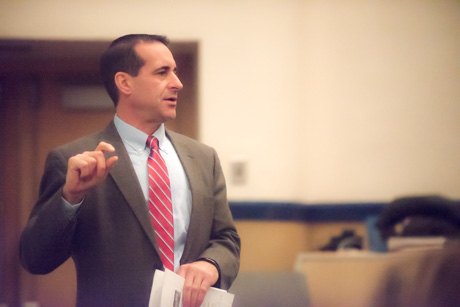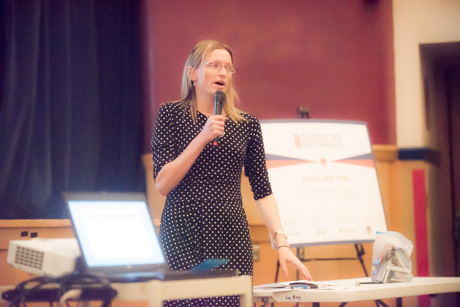
Le Roy and Bergen took one big step forward Monday night toward the goal of community leaders winning a competition with a $3-million prize to help drive local economic development. Consultants presented the outline of a strategic economic development plan.
The plan focuses on bringing infrastructure to the Le Roy Food and Tech Park as well as Appletree Acres in Bergen, but also contains several other goals and tactics for spurring economic growth.
Le Roy and Bergen entered the competition as a team and are among the finalists, and as a finalist the community group leading the effort received $50,000 to come up with the plan to submit to the America's Best Communities competition, which is sponsored by Frontier Communications.
The competition committee hired Saratoga-based Camoin Associates to do the research, conduct the interviews and come up with recommendations for the plan.
The committee came up with the following vision statement to include in the plan:
Our economy is grounded in strong agriculture and food-production industries, a resilient manufacturing sector and vibrant village centers. Our proactive economic development investments provide the foundation for sustainable, long-term growth. Our communities maintain a high-quality lifestyle and livelihood through a collaborative ethic and adaptation and reinvention and by leveraging our historic and natural assets.
Robert Camoin, president and CEO of Camoin Associates, said the second sentence is meaningful in the competition and significant.
"It says you're not going to let happen to you whatever happens to you," Camoin said. "You're taking a proactive approach toward your economic future."
Alyson Slack, an economic development analyst for Camoin, outlined 11 key points in the plan, which includes further investment in the Le Roy Food & Tech Park, marketing the park to target industries, preparing the I-90 interchange for future development, promoting the region's top-quality workforce, exploring the creation of a craft manufacturing incubator for entreprenuers who wish to work out of their homes, and protecting farmland.
"Employers are pleased with the local workforce," she said. "They appreciate the work ethic and the skills that are based on the agriculture history of the area, which fosters a strong willingness to work, problem-solving skills and mechanical know-how."
The big problem facing both Appletree Acres and the Food and Ag park is the lack of high-speed broadband, insufficient electric capacity and no high-capacity natural gas pipeline. If the community wins the $3 million, those issues could be addressed.
The 40 or 50 people who attended the "stakeholders meeting," were invited to provide feedback. Robert Taylor raised a concern about the need for housing to support economic growth and another audience member pointed out that a study of the village land area some years ago found about 50 percent of the village is under-used for housing.
Camoin asked several times for feedback on the proposed plan with little response, then asked if people in the audience were happy with what they saw and heads nodded yes. Taylor said he liked the plan, he just thought housing needed to be more strongly addressed.

